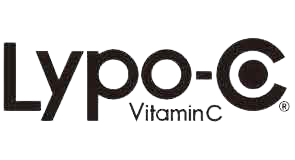I D E A L
V I T A M I N C
I D E A L V I T A M I N C
Why Take Vitamin C?
Vitamin C is a type of water soluble vitamin that is also known as ascorbic acid.
The human body cannot produce Vitamin C. We have to rely on our daily diet to acquire Vitamin C.
Why Take Vitamin C?
Vitamin C is a type of water soluble vitamin that is also known as ascorbic acid.
The human body cannot produce Vitamin C. We have to rely on our daily diet to acquire Vitamin C.
The Benefits of Vitamin C
- Anti-oxidant
- Improves the bodily functions of producing collagen
- Improves the absorption of iron
- Supports body functions
- Maintenance of connective tissue, bones, teeth and essential for growth
The Benefits of Vitamin C
1. Anti-oxidant
2. Improves the bodily functions of producing collagen
3. Improves the absorption of iron
4. Supports body functions
5. Maintenance of connective tissue, bones, teeth and essential for growth
L I P O S O M E
S Y S T E M
High absorption of vitamin C
The effectiveness of the absorption is also relative to the quantity taken,
but what makes Lypo-C a distinguished product?
L I P S O M E S Y S T E M
High absorption of vitamin C
The effectiveness of the absorption is also relative to the quantity taken,
but what makes Lypo-C a distinguished product?

Liposome
Liposomes are nano-sized capsules
that share similar structure as cell membranes.
Liposomes protects the nutrients from digestive fluids and oxidation.
Liposome
Liposomes are nano-sized capsules
that share similar structure as cell membranes.
Liposomes protects the nutrients from digestive fluids and oxidation.
Striving to produce high quality lyposomes:
Some of the challenges of producing lyposomes are high manufacturing costs,
performance uniformity, difficulty of mass production, and that lyposomes are inherently unstable.
Lypo-C are produced from Japanese manufacturing technologies to produce the ideal lyposomal Vitamin C.
hat share similar structure as cell membranes.
Lyposomes protects the nutrients from digestive fluids and oxidation.
Striving to produce high quality liposomes:
Some of the challenges of producing liposomes are high manufacturing costs,
performance uniformity, difficulty of mass production, and that liposomes are inherently unstable.
Lypo-C are produced from Japanese manufacturing technologies to produce the ideal liposomal Vitamin C.

